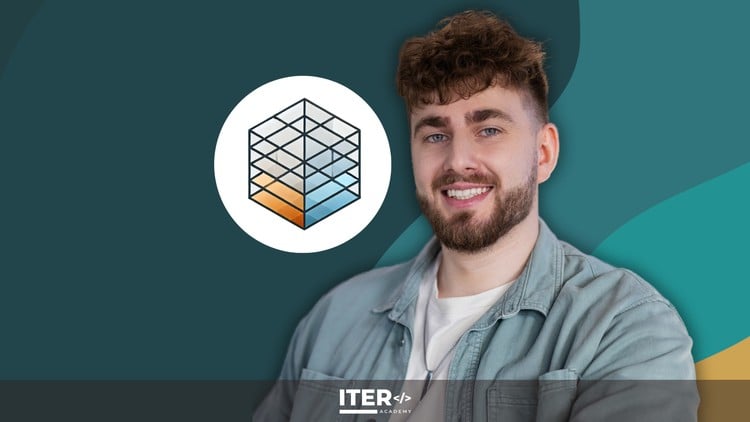
Object Oriented Programming (OOP), Classes, Objects, Encapsulation, Inheritance, Polymorphism, SOLID and more
⏱️ Length: 3.5 total hours
⭐ 4.49/5 rating
👥 21,348 students
🔄 January 2025 update
Add-On Information:
Note➛ Make sure your 𝐔𝐝𝐞𝐦𝐲 cart has only this course you're going to enroll it now, Remove all other courses from the 𝐔𝐝𝐞𝐦𝐲 cart before Enrolling!
-
Course Overview
- Embark on a transformative journey into modern Java Object-Oriented Programming (OOP), meticulously updated for 2025.
- Shift your programming paradigm from procedural coding to designing elegant, modular, and scalable software systems.
- Uncover the fundamental design philosophies underpinning robust enterprise applications and high-performance solutions.
- Grasp how to conceptualize real-world entities and their interactions, translating them into clean, maintainable code structures.
- Explore beyond mere syntax, understanding the ‘why’ behind each OOP concept to foster deeper architectural insight.
- Prepare yourself for professional software engineering by adopting industry-standard practices for code organization.
- Build a flexible intellectual framework that supports adaptable software evolution and future-proofing.
- Learn to manage project complexity effectively by breaking systems into interconnected, manageable components.
- Cultivate a design-first mindset, focusing on relationships, behaviors, and responsibilities within your applications.
- Engineer solutions that are inherently more readable, testable, and resilient to change over time.
- Understand how mastery of OOP opens doors to advanced Java topics like design patterns and major frameworks.
- Engage with practical, hands-on exercises specifically crafted to solidify theoretical knowledge with tangible coding experience.
-
Requirements / Prerequisites
- A foundational grasp of basic Java syntax, including variable declaration, common data types, control flow, and method calls.
- Familiarity with writing and executing simple Java programs within a development environment.
- Access to a computer equipped with Java Development Kit (JDK) 8+ and a preferred IDE (e.g., IntelliJ IDEA, Eclipse, Visual Studio Code).
- An eagerness to learn new programming paradigms and a proactive problem-solving attitude.
- No prior experience with Object-Oriented Programming is required; this course builds concepts from the ground up.
- A stable internet connection for accessing course materials, downloading necessary tools, and participating in online learning.
- Commitment to practicing the concepts through provided exercises to ensure thorough understanding and skill development.
-
Skills Covered / Tools Used
- Modular Code Construction: Design independent, self-contained units for enhanced reusability and simplified maintenance.
- Abstract Data Type Implementation: Master creating classes that effectively model real-world entities, encapsulating data and behavior.
- Controlled Data Access: Implement robust mechanisms to manage object data access, safeguarding internal state integrity.
- Establishing Hierarchical Relationships: Construct sophisticated class hierarchies reflecting ‘is-a’ relationships for code sharing.
- Dynamic Behavior Adaptation: Leverage polymorphism for flexible code interacting with diverse object types through unified interfaces.
- Defining Behavioral Contracts: Design clear interfaces specifying common behaviors across classes, fostering loose coupling.
- Abstraction through Interfaces/Abstract Classes: Define generalized blueprints hiding implementation details, promoting simpler client interaction.
- Principles for Sustainable Software: Apply SOLID principles for crafting maintainable, scalable, and resilient Java applications.
- Software Design Pattern Foundations: Lay groundwork for understanding common design patterns by internalizing core OOP principles.
- Effective API Design: Gain insights into creating intuitive, stable public interfaces for custom Java classes and components.
- Refactoring for OOP Compliance: Develop an eye for transforming procedural code sections into more object-oriented designs.
- Java Development Kit (JDK): Practical application of the core Java platform for compiling and executing all course code.
- Integrated Development Environments (IDEs): Hands-on experience with advanced features like intelligent code completion and debugging tools.
- Conceptual Debugging Techniques: Enhance ability to trace execution flow and identify logical errors within OOP structures.
- Object State Management: Learn to meticulously manage the lifecycle and state transitions of objects, preventing common pitfalls.
-
Benefits / Outcomes
- Comprehensive OOP Fluency: Achieve deep, practical Java OOP understanding, propelling you into intermediate and advanced development.
- Professional Code Architect: Gain the ability to design Java applications focusing on maintainability, scalability, and professional standards.
- Enhanced Problem-Solving Acumen: Approach complex programming challenges with a systematic, object-oriented mindset for elegant solutions.
- Accelerated Career Growth: Significantly bolster your resume and interview readiness for roles demanding strong Java and OOP design skills.
- Future-Proofing Software: Develop applications inherently adaptable to future requirements and easier to extend without major overhauls.
- Seamless Team Collaboration: Produce well-structured, readable code facilitating easier understanding and modification by teammates.
- Reduced Debugging Overhead: Write modular, encapsulated code that naturally isolates issues, simplifying bug identification and resolution.
- Framework Readiness: Be thoroughly prepared to understand and utilize major Java frameworks (like Spring Boot) built on OOP foundations.
- Confidence in Design Choices: Make informed decisions about class structure, inheritance hierarchies, and interface definitions.
-
PROS
- Up-to-Date Content: Features a significant January 2025 update, ensuring current and relevant Java development practices.
- Exceptional Student Satisfaction: Boasts an impressive 4.49/5 rating from over 21,000 students, indicating high quality instruction.
- Efficient Learning Curve: Concise 3.5 total hours delivers core OOP concepts effectively without unnecessary fluff.
- Practical, Hands-on Approach: Integrates numerous exercises to convert theoretical knowledge into practical coding skills.
- Solid Foundational Mastery: Provides an excellent starting point for building robust Java applications, essential for advanced topics.
- Real-World Relevance: Focuses on principles directly applicable to professional software development, bridging theory and industry practice.
-
CONS
- Limited Advanced Exploration: Given its foundational scope and concise length, the course might not deeply explore highly complex design patterns or niche OOP paradigms.
Learning Tracks: English,Development,Programming Languages
Found It Free? Share It Fast!